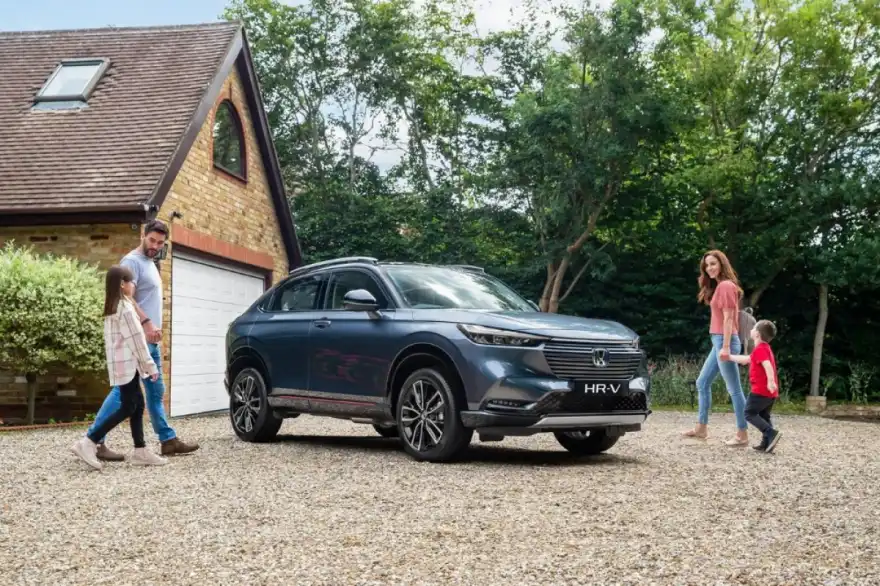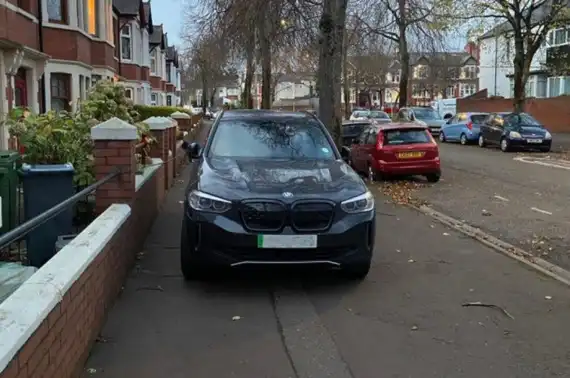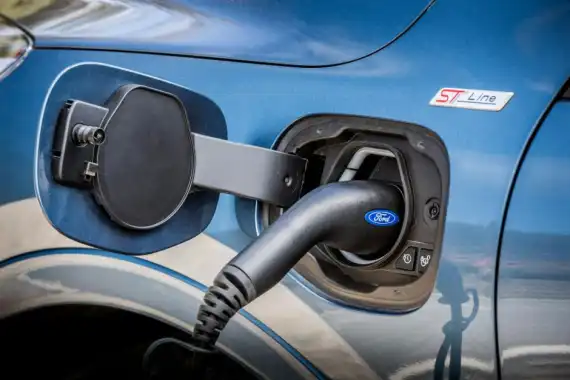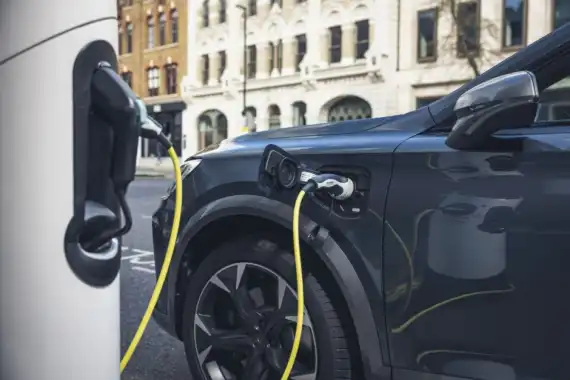
For those who own a property with a driveway, getting their own electric vehicle charger installed is relatively straightforward.
But what about drivers living in flats, terraces or rental properties where that isn't an option? According to the English Housing Survey 2016 this accounts for around 40% (14.5 million) motorists – who can feel 'locked out' of going electric because they don't have anywhere to charge an EV.
The amount of consideration shown to this section of the population is quite frankly, nil. There simply isn’t a decent and sustainable option for those with no off street parking to genuinely consider an electric vehicle.

Only last week, residents in Cardiff had a big debate about whether this X5 beached on a street in order to charge was acceptable or not – and we’d be interested to hear your thoughts below.
The Society of Motor Manufacturers and Traders (SMMT) says that the government must install 700 charging points a day if the UK is to reach its target of 2.5 million chargers by 2030 – but the rate is currently just 42 chargers.
However, during 2021 a new solution has been growing in influence and popularity – Community Charging.
Community Charging Explained
Community Charging enables 'Hosts', who have EV chargers on their driveways to share them with 'Chargees' - motorists who can't charge at home and would welcome the chance to access convenient, affordable charging on a neighbour's driveway. Co Charger is currently the only purpose-built Community Charging platform and the app handles all the 'matchmaking', bookings and payments.
There are currently around 39,000 electric vehicle charge points available in the UK and over 400,000 home chargers. By sharing even a fraction of them via Community Charging, electric vehicle uptake can be transformed.

More home electric vehicle charging points available than Tesla public chargers
Co Charger was launched in November 2020 and has grown 28% month-on-month during 2021. With more than 5,400 users and over 2,100 hosts it is now the fifth largest network in the UK, outnumbering Tesla which has 1958 chargers (1178 destination chargers and 780 superchargers) according to Zap-Map November 2021. It also has more chargers than other companies including Instavolt (643), Source London (1605) and ChargePlace Scotland (1908).
Community Charging might be the 'the new kid on the block' when it comes to charging but it provides a cost-free opportunity to build a comprehensive UK wide network of electric vehicle chargers and for households without driveways, it can be the next best option to having a charger of their own. It also provides significant benefits, such as being bookable, reliable and in many cases more affordable than the public charging network.
Potential advantages of community charging
Unfortunately most public chargers aren't bookable. This means motorists either have to queue or drive around looking for suitable chargers – and return home after a fruitless journey if none are available. If they are lucky enough to find a vacant charger, it's essential that they pick up their car promptly when it has finished charging to enable other drivers to use the space. Some public chargers have 'overstay' fees, so that's another important reason to watch the clock!
Charging on a neighbour's driveway can be much easier. The Co Charger Host decides when they want to make their charger available for rent, and the Chargee books a slot that suits them. Some Hosts only offer daytime slots and need their Chargee to move their vehicle when they have finished charging. But if they have sufficient space, many Hosts allow the Chargee to leave their vehicle overnight and pick it up the next morning.

More affordable
Public chargers vary significantly in cost. Some chargers, such as those at supermarkets or leisure centres are free for customers, but mostly it's only possible to stay long enough for a top-up charge, rather than a full one. Different electric vehicle charging companies have different pricing structures – some charge a monthly subscription fee, then a charge per kWh, whilst others charge per kWh, or per minute.
Co Charger Hosts set the price for renting their charger with most setting the rate cheaper than local public charge points. Chargees see the price in the app and select a location and price to suit. The process and payment structure is deliberately very simple. At the end of each charging session the Chargee pays via a card pre-registered in the app and the Host receives that payment minus Co Charger's 12% fee. There is no other cost or commitment. Through this, Co Charger's ethos is delivered. Hosts help their neighbours go electric whilst making additional income which contributes to the initial investment in their charger and its installation. The outcome being more available electric vehicle chargers and cleaner, greener neighbourhoods.
Could it be the future? We certainly think it’s a promising idea and will be keeping tabs on it to see how it progresses.




